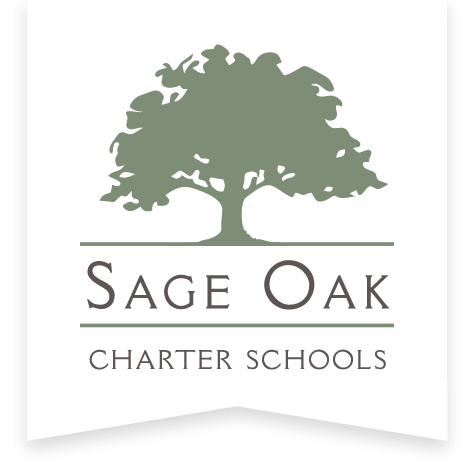The Sage Oak Blog: Instructional Strategies for Student Achievement- Social Studies by Lauren Holman, Virtual Learning Academy Teacher
Sage Oak Virtual Learning Academy Teacher, Lauren Holman, presented helpful resources to educators at the 2022 APLUS+ conference in Mission Bay San Diego, CA. As Sage Oak continues to push the envelope of trailblazing the evolution of education, Lauren’s informational breakout session came at a great time as she highlighted useful resources that encapsulate the core values of our school and benefit teachers, educators, and parents/guardians. At Sage Oak, we focus on providing the best future for our families and as many educational institutions are seeing a decline in achievement post-pandemic, it is important to reflect on the question… what happened to education? Read below to take a deeper look at the world of education through the lens of a virtual learning teacher.
Why is there disengagement?
To start, there is a lack of awareness, both locally and nationally, about how many students are disengaged and socially disconnected. But, how do we bring this focus back into the classroom? In order to bring back engagement and focus, we have to build bridges that connect students to current and relatable topics. The bridges we build are going to help us effectively reconnect students to school.
When the COVID-19 pandemic hit, education, as a whole, was greatly impacted. There were lower test scores, lower achievement levels, and a lack of available resources. Unfortunately, younger students saw the biggest impact and gaps widened as progression slowed.
.png)
How do we fill in the gaps? Resources, resources, resources! Sage Oak is dedicated to providing our students with personalized resources as a way to build connections with them. There are many useful resources available, but we’ve listed a few below as a great starting point.
- Free tutoring
- Chromebook distribution
- Early intervention
- Immediate action on ‘at-risk’ students
- Free lunches
- Socio-emotional support
- Connecting students socially/emotionally
- Getting students excited to learn again
How do we move forward and what are the best practices? Below we listed a few best practices along with examples of how to implement them. These are methods used by Sage Oak teachers to increase student engagement and achievement.
Scaffolding
Scaffolding is a method of support a teacher offers students as they learn to problem solve and develop a new concept or skill. The teacher shows how a task is done, then the students can collaborate with others, and eventually, work independently.
Show and Tell
Fishbowl Activity
Show Outcome
Think Alouds
Tap into prior knowledge
Ask students to share their own experiences/connections to the topic
Give time to discuss
Think/Pair/Share, Turn & Talk
Pre-teach any topics/goals
Front-load essential question(s)
Use visual aids
Nearpod (a favorite tool used by Sage Oak virtual academy teachers)
Pause, ask questions, pause, review
Check for understanding
Inquiry-Based Learning
Inquiry-based learning is all about triggering curiosity. Below we listed a few ways to implement this strategy in an effective manner.
Keyword: TRIGGERING!
Modeling
Enthusiasm
“How do I make History exciting?!”
How do I trigger students’ curiosity?
Combat the “I dunno” response to “What do you know about this topic?”
Steps to Inquiry-Based Learning
1) Students develop questions
2) Research during class time
3) Students present what they learn
4) Student reflection
Focus on Student Achievement
Twenty-First-Century Assessment
Student reflection
Student presentations
Multiple forms of assessment after lesson quizzes, educational games, video questions, and polls – all recorded & reported
Also, remember the importance of classroom management. To manage an online class, teachers must set clear expectations, develop classroom routines, and perfect online platform settings (Zoom, Canvas, etc.). As a virtual teacher, it’s also important to keep the following things in mind.
- Limit bias. Accept that we have it and make considered decisions while avoiding assumptions.
- In virtual learning, there are challenges and obstacles, but there are also successes and wins!
For additional ways to engage students online, Lauren also provided attendees with her favorite virtual learning resources.
Nearpod is a student engagement platform that gives students a chance to show what they know and allows the educator to know where students in every step of the way while building authentic connections, including peer-to-peer and student-to-teacher collaboration. It also allows for the creation of interactive lessons for students, live or student-paced.
Kahoot is a game-based learning platform that engages students in a competitive way. It Checks for understanding and shows reports such as who played, who completed, what topics need reteaching and what a student achieved.
Here’s a full list of frequently utilized resources:
Pulitzer
Smithsonian
Click here to view the presentation.


